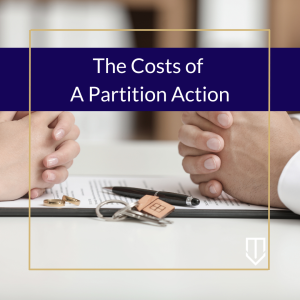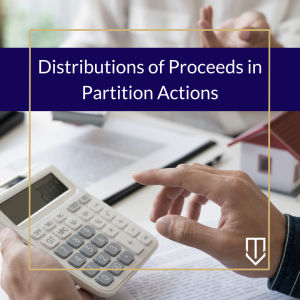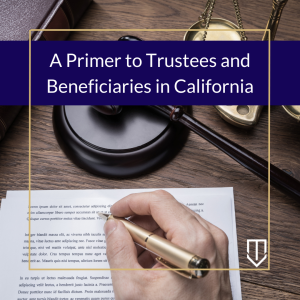 When it comes to real estate transactions, ensuring a clean and clear title is essential. However, what happens if a property is sold without a perfect title, only for the seller to acquire the missing rights or interests later? This scenario is where the After Acquired Title Doctrine comes into play. In this blog, we’ll discuss what this doctrine entails, its implications for buyers and sellers, and how it impacts real estate transactions.
When it comes to real estate transactions, ensuring a clean and clear title is essential. However, what happens if a property is sold without a perfect title, only for the seller to acquire the missing rights or interests later? This scenario is where the After Acquired Title Doctrine comes into play. In this blog, we’ll discuss what this doctrine entails, its implications for buyers and sellers, and how it impacts real estate transactions.
What is the “After Acquired Title Doctrine”?
The After Acquired Title Doctrine is a legal principle that addresses situations where a seller transfers property without having complete ownership or rights to the property at the time of sale.
 California Partition Law Blog
California Partition Law Blog













 In every lawsuit, one of the biggest consideration is the cost. Frequently, clients are very eager to understand the amount that they will be required to pay to have their case resolved. After all, most people do not have a pot of money set aside for lawsuits, and are forced to eat into their savings to pay for an attorney to help with their legal problems. Even when attorneys’ fees are available for reimbursement, as they are in a partition action, the question of costs is always a significant question.
In every lawsuit, one of the biggest consideration is the cost. Frequently, clients are very eager to understand the amount that they will be required to pay to have their case resolved. After all, most people do not have a pot of money set aside for lawsuits, and are forced to eat into their savings to pay for an attorney to help with their legal problems. Even when attorneys’ fees are available for reimbursement, as they are in a partition action, the question of costs is always a significant question. Before the owners receive the proceeds from a partition sale, costs and expenses related to the
Before the owners receive the proceeds from a partition sale, costs and expenses related to the  The Marketable Record Title act provides a statutory time limit to eliminate certain liens. Specifically, the purpose is to enhance the marketability of property by fixing an expiration date for certain interests, which are generally ancient mortgages, deeds of trust, unexercised options, powers of termination, unperformed contracts for the sale of real property, dormant mineral intersts, and abandoned easements, while also providing a procedure for allowing the interests to be preserved. In other words, the Act helps to simplify and facilitate real property transactions. In this blog, we’ll delve into what the Marketable Record Title Act entails, its significance, and how it impacts property owners.
The Marketable Record Title act provides a statutory time limit to eliminate certain liens. Specifically, the purpose is to enhance the marketability of property by fixing an expiration date for certain interests, which are generally ancient mortgages, deeds of trust, unexercised options, powers of termination, unperformed contracts for the sale of real property, dormant mineral intersts, and abandoned easements, while also providing a procedure for allowing the interests to be preserved. In other words, the Act helps to simplify and facilitate real property transactions. In this blog, we’ll delve into what the Marketable Record Title Act entails, its significance, and how it impacts property owners. Often, the question of distributing rent earned on a co-owned property arises in the context of cotenants. Cotenants have equal rights to possess their property with their fellow cotenants. This means that no one cotenant can exclude another from the property. One cotenant can, however, assign their
Often, the question of distributing rent earned on a co-owned property arises in the context of cotenants. Cotenants have equal rights to possess their property with their fellow cotenants. This means that no one cotenant can exclude another from the property. One cotenant can, however, assign their  Probate Code section 859 protects certain individuals whose property or money is taken, concealed, or disposed of by another. Section 859 does this by imposing hefty penalties on anyone who wrongfully takes or conceals property belonging to certain groups.
Probate Code section 859 protects certain individuals whose property or money is taken, concealed, or disposed of by another. Section 859 does this by imposing hefty penalties on anyone who wrongfully takes or conceals property belonging to certain groups. A trust is a legal device that is commonly used in estate planning. A trust represents “a collection of assets and liabilities” that can be held and transferred by an individual to another individual, the “beneficiary.” (Portico Mgmt. Grp., LLC v. Harrison (2011) 202 Cal.App.4th 464, 473.) When the trustee, the person responsible for managing and distributing the trust’s assets, has a personal interest in those assets, certain problems can arise. This is because the trustee is bound by several legal duties designed to safeguard the interests of the beneficiaries. Therefore, if a trustee is also a beneficiary, they must make sure that they do not unduly favor themselves at the expense of the other beneficiaries.
A trust is a legal device that is commonly used in estate planning. A trust represents “a collection of assets and liabilities” that can be held and transferred by an individual to another individual, the “beneficiary.” (Portico Mgmt. Grp., LLC v. Harrison (2011) 202 Cal.App.4th 464, 473.) When the trustee, the person responsible for managing and distributing the trust’s assets, has a personal interest in those assets, certain problems can arise. This is because the trustee is bound by several legal duties designed to safeguard the interests of the beneficiaries. Therefore, if a trustee is also a beneficiary, they must make sure that they do not unduly favor themselves at the expense of the other beneficiaries. California Code of Civil Procedure section 998 encourages parties involved in legal disputes to settle prior to trial. According to this law, either party can present a written settlement offer to the other party up to ten days before the trial begins. (CCP § 998(b).)
California Code of Civil Procedure section 998 encourages parties involved in legal disputes to settle prior to trial. According to this law, either party can present a written settlement offer to the other party up to ten days before the trial begins. (CCP § 998(b).)
 Recently,
Recently,